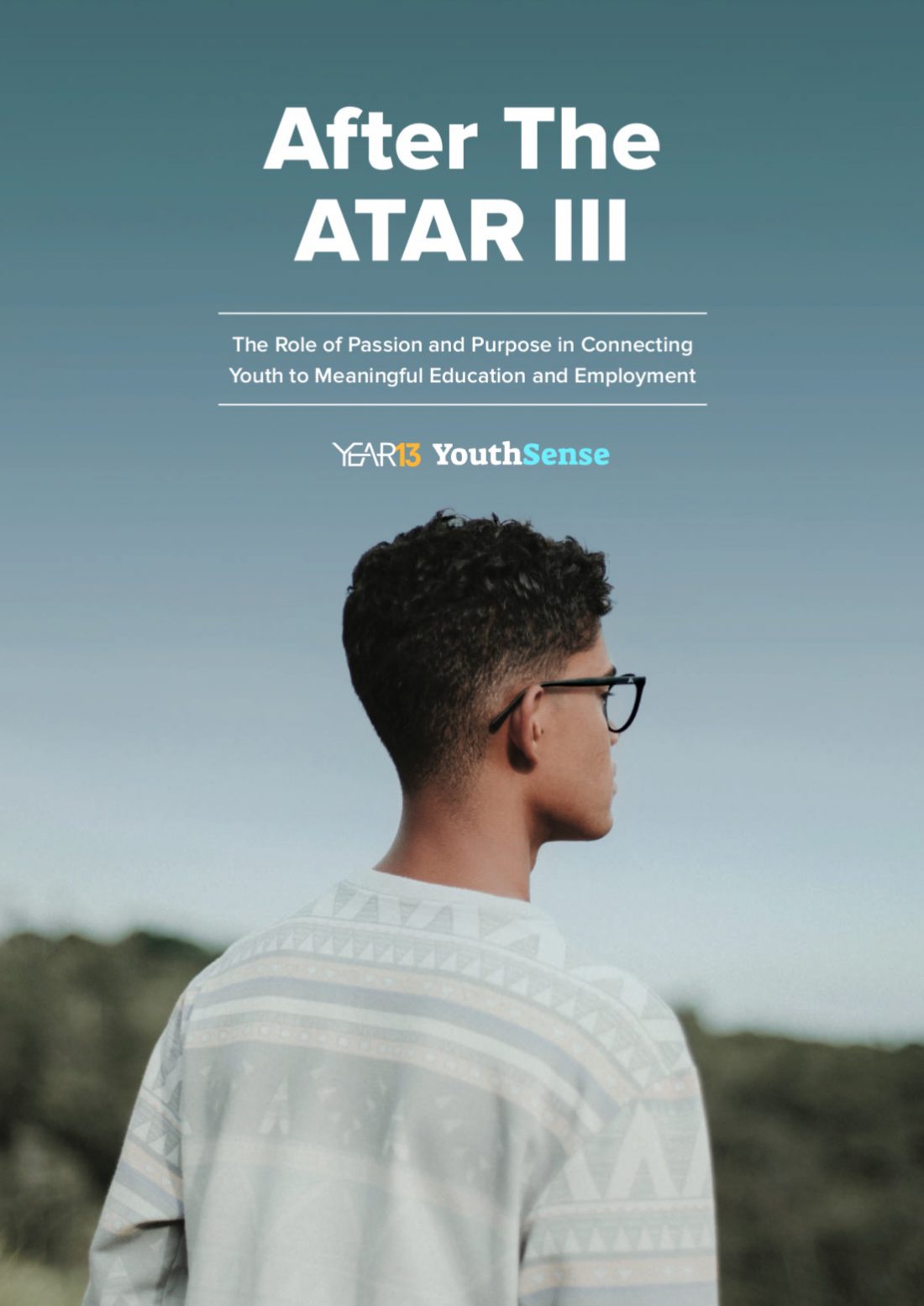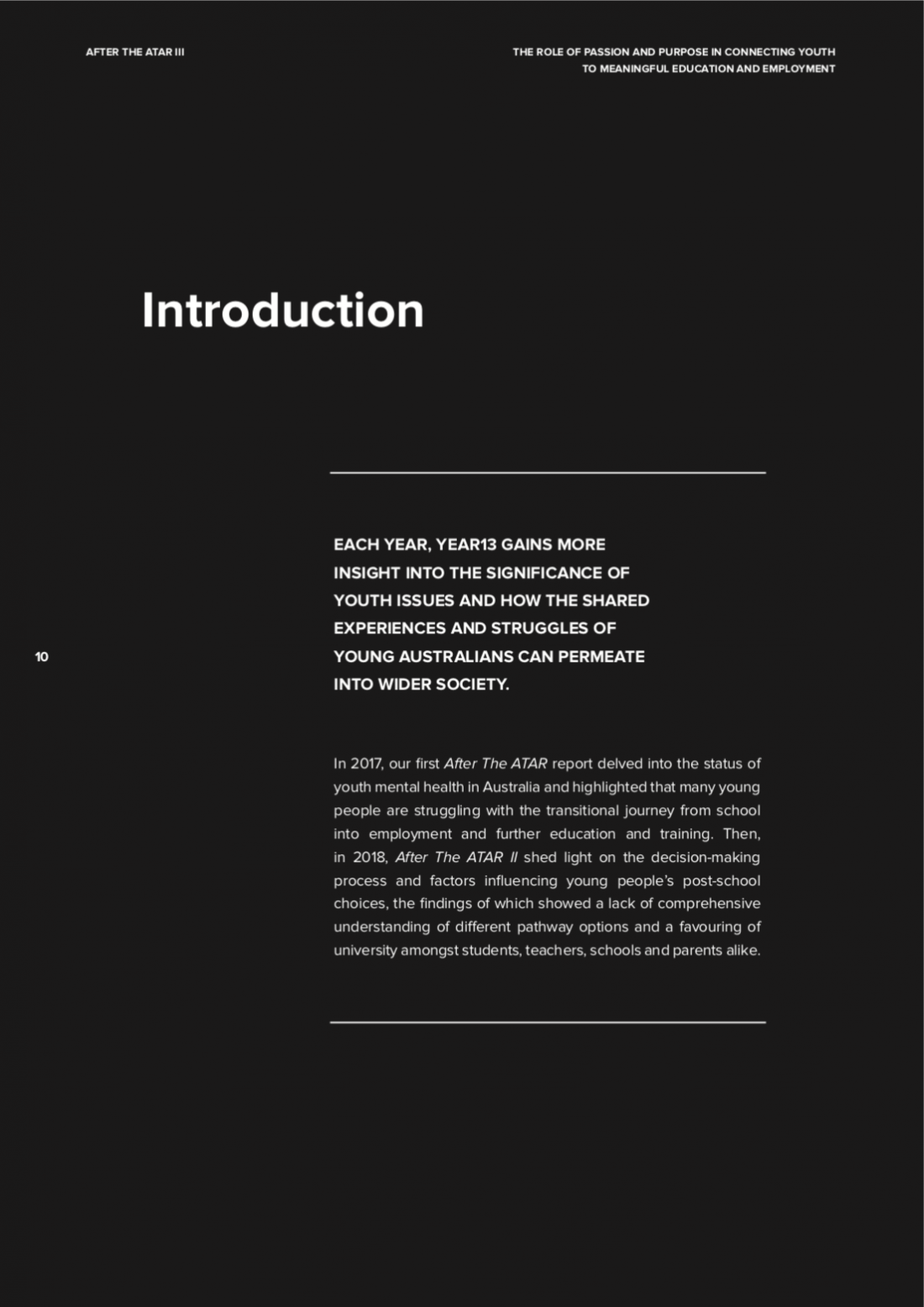
Those of us who are in the business of understanding the next generation tend to converge on the term “youth disengagement”. It’s a negative combination of words and it’s not thrown around lightly. Yet it’s an observation so often repeated that it’s worth explaining in detail.
Governments, education providers and businesses are generally missing the mark when it comes to communicating with youth, but it’s difficult to gauge what the consequences of this phenomenon actually look like. Who is disengaged from whom? What are they disengaged from? And what are the consequences?
Part of the answer lies is the stark contrast between how youth perceive themselves and how they think older generations perceive them. As part of a research paper powered by YouthSense and Year13 – After The ATAR: Understanding How Gen Z Transition into Further Education and Employment – we asked young people to choose some language to describe their generation. The top answers were “intelligent” (65%), “wordly” (54%), “respectful” (49%) and “go-getter” (46%). This seemed to be a positive result. If young people consider their creed to be a bunch of intelligent, wordly, respectful go-getters then surely they’re not too disengaged.
But the telling results came when we asked how youth think older generations perceive them. The top answers were “lazy” (76%) and “entitled” (54%), followed by “intelligent” (24%). So, regardless of how older generations actually perceive youth, younger generations don’t feel sufficiently encouraged by their elders.
These statistics go to the core of what “youth disengagement” actually means: young people overwhelmingly perceive that their elders undervalue them, underestimate them and put pressure on them.

This creates a whole range of symptoms, including the fact that youth are increasingly feeling stressed. One respondent of our survey, a 17-year-old male, put it this way:
“Something that I have heard a lot in recent months from adults is [that] ‘school is the easiest time in your life’… [It] doesn’t seem too easy right now. It can be so hard and when people around me say it’s only going to get harder, I worry.”
This fits into a larger narrative of stress and mental health issues among high school students. Another respondent, an 18-year-old male, had this to say:
“When you are in school, the expectations from teachers, the principal and parents [are] overwhelming. It seems that you are looked at as merely someone that these people can either brag about or criticise… The pressure and stress this puts on students is incredible.”
To build on the example of schools, communication becomes ineffective when there is too much of it and it is conflicting. When it comes to the ATAR, high school students are simultaneously told that they should work hard to score high test results but also that it doesn’t necessarily matter because they can always get into university through alternative pathways.
As one mother put it:
“Stop providing conflicting information to these students. On one hand [schools] place enormous weight on achieving high ATAR and on the other, they’ll tell the students not to worry as there are many pathways to get to their career goal. I see students frustration and confusion often leading to massive stress.”
Communication is at the core of the problem.
In the last decade, it’s become self-evident that young people have their own communication channels. And they’ve proven time and time again that they are the ones who are dictating the terms and conditions of this communication. Young people dominate the mediums of Facebook, Instagram, Snapchat and Tumblr. Governments, brands and education providers are starting to realise this and they’re desperately racing to catch up.

When asked whether “older generations communicate with them effectively”, 73% of young people said “no”.
So the cycle of youth disengagement is fuelled by unrealistic expectations, poor communication and the result is high stress. And until governments,
Grab your free copy of our After The ATAR III report for more data and unique insights about Gen Z.







